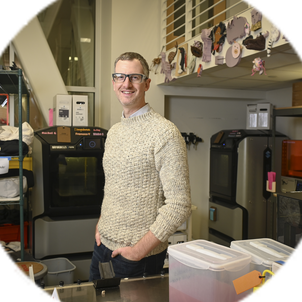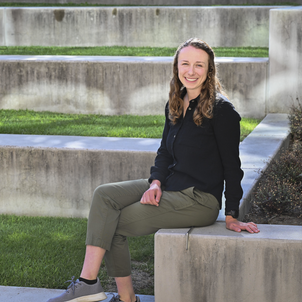It touches every part of people’s lives – from developing breakthrough drugs to designing cutting-edge electronics, to reducing our reliance on fossil fuels with clean energy. Chemical engineers do a lot of interesting things that have a real impact on the world.
I work at Lam Research. We make machines that manufacture tiny, complex microchips that are found in almost anything that has an on-off switch. Every computer, cellphone and even our cars have microchips. To improve microchip performance, engineers have made the tiny components on each chip smaller and smaller.
To do that, we control material on the nanometer scale and work on shrinking integrated circuits. The results can be impressive and examples are all around us. One example we all know is that computers used to be so large they took up whole rooms. Now the same computing power can be found on your smartphone and kept in your pocket.
The graduate research I did at Stanford helps me every day in my current job. I worked on atomic layer deposition, which controls the placement of layers of atoms on microchips. While at Stanford, we were searching for alternative energy applications, but in my work now, I’m using the same technology to find new ways of making our devices smaller.
Working on this small scale is also a challenge because it’s becoming increasingly difficult to keep making devices both smaller and better. We’re getting to the point where it’s harder to scale down and we’re running into physical size limits. New materials and designs are helping us improve performance and energy efficiency, and those are the new solutions we’re actively searching for every day.
It’s cool to work on technology that shapes the future in such a visible way. Smaller, reliable devices democratize information. Because of the technology we create, people are getting free education, better health care, safer products and more connection with others in every corner of the globe. Chemical engineers are shaping our world today and will help people in even more ways in the future.
Related spotlights

Dan Somen

Sonia Martin


